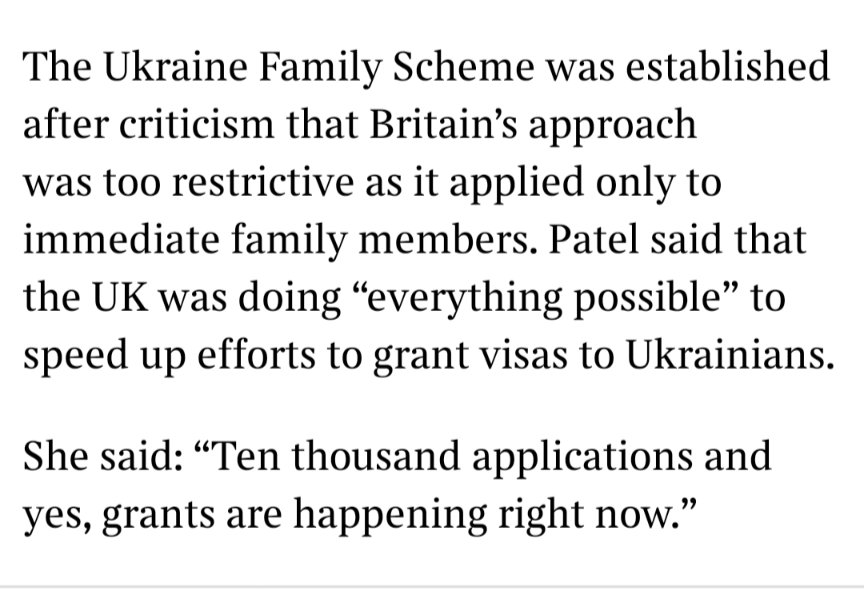
THREAD: There is a persistent narrative that the UK has always had a "welcoming attitude to #refugees". There's a problem with this though, it is a nostalgic myth. In reality there are few differences in the way the UK acts now, and how it did in the past. Little of it good. 1/
It generally seems to be accepted that by the outbreak of World War two the UK had taken approximately 70,000 Jewish refugees, which sounds a lot until you realise that it is estimated that they rejected about half a million. 2/
theguardian.com/uk/2002/jun/08…
theguardian.com/uk/2002/jun/08…
Overall it's estimated about 80,000 people were offered refuge in UK, including nearly 10,000 through the Kinderstransport. Good huh. Well there were approximately 60 million displaced people, including 12 million Germans, so not brilliant to be honest 3/
gale.com/intl/essays/ra…
gale.com/intl/essays/ra…
The scale of refugee movements in such a relatively short period caused by World War Two is scarcely comprehensible in terms of numbers. No-one is suggesting that the UK should have taken all of them, but the fraction it did take was tiny. 4/
bbc.co.uk/history/worldw…
bbc.co.uk/history/worldw…
Why though? Well, the same reasons as now. Very little has changed really. Remember that this is before the 1951 Refugee Convention. Pretty much everything boiled down to domestic immigration policies, and the UK's were harsh, as they are now. 5/
Under British law, in order to seek refuge here you had to have £50 in an offshore bank account, roughly £3,629.14 in todays money, although that doesn't account for shift in buying patterns. 6/
cupola.gettysburg.edu/ghj/vol4/iss1/…
cupola.gettysburg.edu/ghj/vol4/iss1/…
Even then they risked being placed in internment camps, of which approximately 15,000 refugees were, rather than being provided with safe accommodation, so again not too much has changed when you look at current proposals and places such as Napier. 7/
blog.nationalarchives.gov.uk/collar-lot-bri…
blog.nationalarchives.gov.uk/collar-lot-bri…
Public opinion, usually a driver of government policy, was heavily influenced by the media. Refugees were treated with suspicion, at best, and outright hostility. It isn't just Priti Patel who talks about refugees in terms of "national security". 8/
theguardian.com/world/2022/feb…
theguardian.com/world/2022/feb…
So, overall, the UK's response to refugees during the war was somewhat less than the noble welcome it is perceived as now, but its attitude afterwards was little better. Refugees were seen in terms of a labour resource, think "seasonal workers visas". 9/
bbc.co.uk/history/worldw…
bbc.co.uk/history/worldw…
Kevin Foster's comments about Ukrainian refugees being able to apply for "seasonal workers visas" may have sounded disgusting, because, let's be honest they were, but they were also in line with decades of the same thinking by successive governments. 10/
bbc.co.uk/news/uk-englan…
bbc.co.uk/news/uk-englan…
Even the language of the government has remained the same. If you look at Hansard in relation to Hungarian refugees in 1956 the same approach is being taken of "support other countries". The UK took about 11,500 refugees, out of approximately 200,000. 11/
api.parliament.uk/historic-hansa…
api.parliament.uk/historic-hansa…
Flash forward to 1979 and the wording is almost identical to that used by Priti Patel today. More than 40 years on from the first briefing shown to now and the argument remains that other countries should do more so the UK can do less. 12/ 





Hostility towards refugees in Britain goes back centuries. You could take Shakespeare's Sir Thomas Moore speech and it would not be out of place in the debate on the #NationalityAndBordersBill today. 13/
qz.com/786163/the-ban…
qz.com/786163/the-ban…
There's nothing new under the sun when it comes to the UK and immigration/asylum. Even the language has not changed. It has never been "welcoming". It has always used the "big numbers, little context" theory of debate to try and appear that it does more than it actually does. 14/
For most people, they see a figure such as 70,000 and it looks huge. You look at it in terms of the number of refugees who were rejected, 500,000, and it becomes tiny. Government's have always played on the idea that big sounding numbers mean big approaches to support. 15/
We're seeing the same thing happen now. Government throws out figures such as 200,000, yet has only processed 50 visas. As during WW2 they've placed economic restrictions on visas, denying people refuge. We still place asylum seekers in camps, and plan to expand them. 16/ 







The UK has never been the "welcoming nation to refugees" that politicians and pundits of all stripes like to make out. It has been consistent though in its belief that refugees are "something" that other countries should deal with and that it should avoid as much as possible. 17/
• • •
Missing some Tweet in this thread? You can try to
force a refresh









